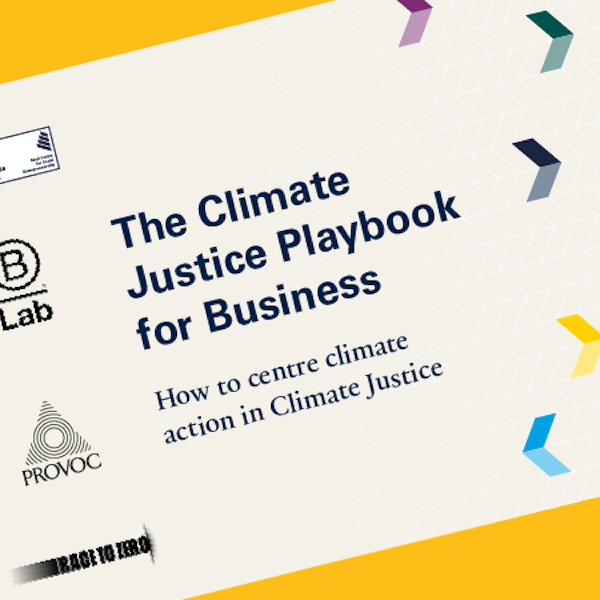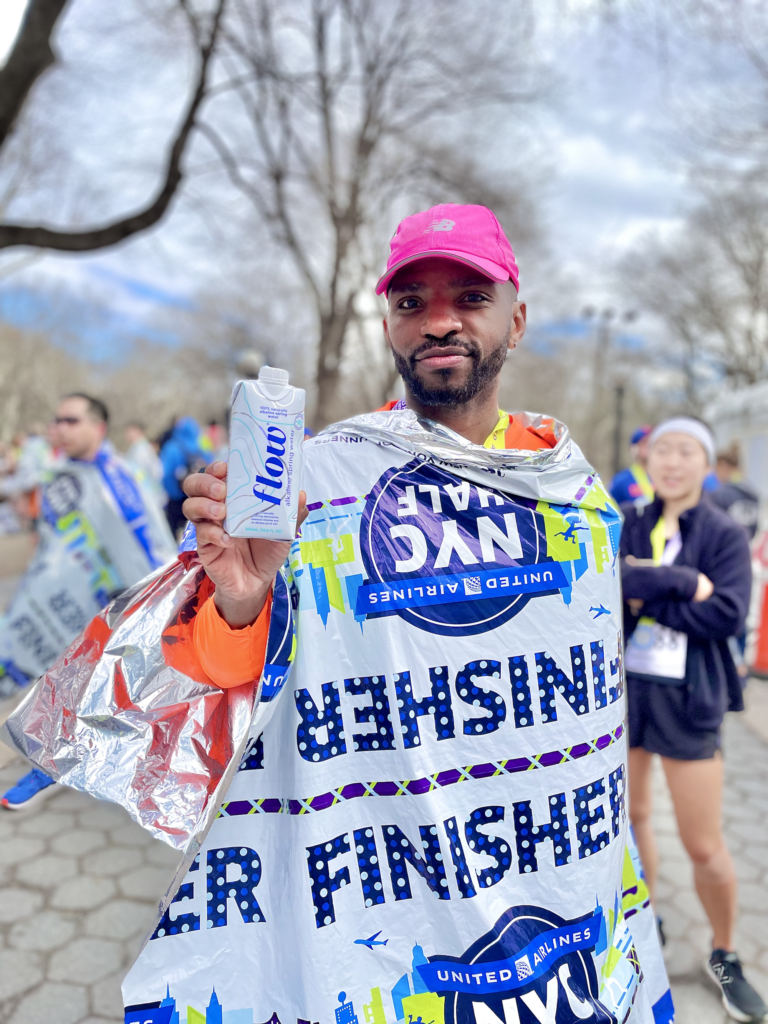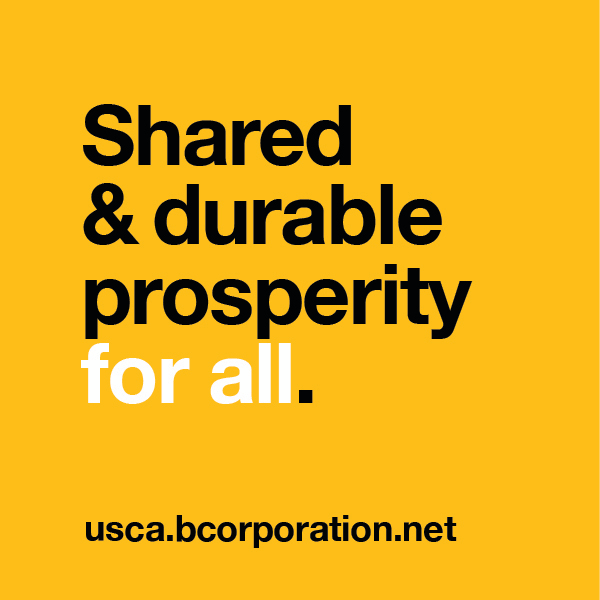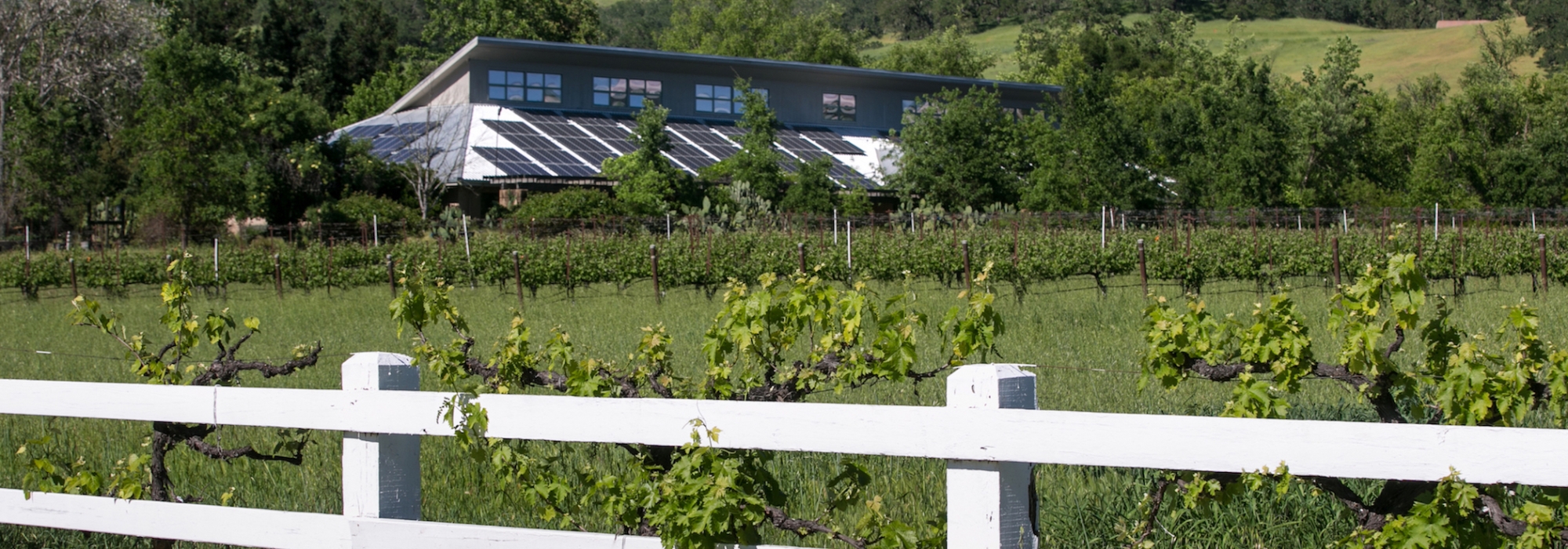B Corps Raise the Bar for Business Climate Action
March 31, 2022
Behind the B: The Vital Role of Customers, Workers, and Suppliers in Building Inclusive and Sustainable Businesses
As the recent IPCC climate report makes clear, now is the time to act — with purpose and urgency — on the climate crisis. Amid warnings of the dire consequences of inaction, the report calls for business climate action alongside government and community-level change. Certified B Corporations are among those businesses already heeding this call to tackle the climate crisis — developing practices and products that reduce their environmental impact and regenerate the Earth. B Corps know business climate action makes sense and are taking responsibility for the effects of their operations on the planet—their, and our, future depends on it.
These business leaders also realize that stemming the climate crisis requires a collective effort and are involving more people — workers, suppliers, customers, and others — through education, partnerships, and awareness. And because the impacts of climate change tend to fall hardest on the least fortunate communities, B Corps also are taking a more holistic view of sustainability that incorporates justice and equity.
As Alison Czeczuga, director of social impact and sustainability at B Corp Gaia Herbs, said of business climate action: “It’s important to have networks, not just your company … others who challenge and support you.”

Impact Topic in Practice
This guide focuses on the Environmental Stewardship & Circularity Impact Topic, which asks companies to take a conscientious and sustainable approach and to become environmental stewards, demonstrating accountability and leadership. Download the guide for examples and resources to support your business in meeting the requirements within this Impact Topic.
Centering People Affected First and Worst by Climate Change
Czeczuga was among B Corp leaders attending the recent Natural Products Expo West event for businesses in the natural, organic, and healthy products industry. She and Karen Lickteig, community coordinator and strategic advisor to the B Corp Climate Collective at B Lab U.S. & Canada, were featured in a session on incorporating justice and equity into regenerative agriculture practices.
Lickteig said B Corps are among the companies diving into business climate action and justice as part of their commitment to interdependence and stakeholder benefits — realizing the connections with and impacts on others. As they use business as a force for good, B Corps are adopting a more holistic view of sustainability, she said. “It’s really about centering people. For a long time, we’ve divorced people and the environment,” Lickteig said. “It’s moving from that lens to actually realizing we need to center people and equity and justice.”
For the B Corp Climate Collective, that has meant a journey to learn more about climate justice and the creation of the Climate Justice Playbook for Business as a resource for companies who also want to take that journey. “For us, it means centering the voices of frontline communities and people who are affected first and worst by climate change, who should be leading the solutions, the first ones at the table, that we should be looking to,” Lickteig said. “These practices aren’t new technologies — they’re old practices. It’s about learning and listening and taking the leadership from people who are most familiar with them.”

The Expo West discussion featured, from left, moderator Maryanne Howland and speakers Kara Boyd, Alison Czeczuga, and Karen Lickteig.
Czeczuga said Gaia Herbs was founded on the theory that Earth is one interconnected organism. “Everything that we do affects other systems,” she said. “If you’re just solely focused on energy or carbon … sometimes you miss the social and environmental aspect.” For its climate justice work, Gaia takes a community-led approach by starting conversations with farmers and other people in its supply network. “Our approach has been to be collaborative with them. Starting the conversations: What are you experiencing? What do you need?”
Because farmers are most familiar with the land and how climate change has affected it, listening to and learning from their experiences can provide valuable — and time-tested — ideas on how to change practices, said Kara Boyd, president of the Association of Indian Farmers and a Kiss the Ground board member, who also was part of the discussion. “A lot of the principles and practices being reintroduced today as regenerative are actually very old and part of Indigenous culture,” Boyd said.
At Gaia’s corporate farm in North Carolina, Czeczuga said that it includes development of a migrant worker program with four components — housing, fair wages and benefits, leadership and advocacy, health and wellness — that the workers help shape. “Hearing from them has been a huge part of the learning journey,” she said. Another component of Gaia’s supply network program in Nicaragua is the creation of a Global Farmer Investment Fund, which has been used for agro-forestry training to help them diversify their crops and learn how to grow turmeric and vanilla, which are climate-friendly and more resilient.

The Climate Justice Playbook for Business
This practical guide from B Lab features information to help business leaders understand the intersection of climate action and social justice and advance a justice-centered approach to climate action.
“How you bring inclusion is through conversations and asking questions,” she said, acknowledging that the work is challenging as well as rewarding. “It’s important to have support networks, not just your company — like the B Corp Climate Collective, B Lab — others who challenge and support you. Tension is definitely going to arise, but you don’t want to be talking in an echo chamber.”
It’s also important to realize that the work is a process that will include successes and mistakes. “There’s a big learning curve,” Czeczuga said. “It’s not going to reach the end point. Knowing that it’s a long journey and we’re at the beginning is helping.”
Educating Consumers and Partnering to Reduce Event Impact
Through a new partnership that includes one of New York City’s biggest annual events, Flow Water is pursuing its goals of providing a more sustainable hydration option than plastic bottles and educating customers about their power to make choices with less environmental impact. The Ontario-based B Corp kicked off its multi-year work with New York Road Runners at the start of 2022, and will provide water at the group’s three largest events — the NYC Half Marathon, Brooklyn Half Marathon, and New York City Marathon — as well as smaller running events throughout the year.
The partnership “means more than getting rid of plastic bottles that helped hydrate runners on the course and after the race — it also means educating participants about the option they have to make better choices for themselves and the planet,” said Flow Water CEO Maurizio Patarnello.

Flow Water plans to move beyond carbon neutrality across all emissions scopes by 2025 and become carbon negative through a combination of renewable energy sourcing, energy efficient operations, more sustainable transportation and logistics, and supplementing such efforts with high-quality carbon offsets. (Photo courtesy Flow Water)
“Flow has begun working hand-in-hand with New York Road Runners to make each event and race as sustainable as possible,” Patarnello said. “Aside from displacing single-use plastic water bottles at the events, Flow is committed to supporting the waste diversion and recycling efforts at each race.”
To help consumers ditch the plastic, Flow creates its packaging from mostly renewable, plant-based materials — including paperboard packs and plant-based caps made from sugar cane — that are 100% recyclable and 70%-75% renewable depending on format and product. The B Corp also prioritizes protecting and preserving the sources of its water through land stewardship and management practices that prevent erosion and aid natural aquifer recharge. Flow works with hydrologists and ecologists who monitor its springs and their habitats and help protect their long-term viability, and also follows production processes designed to use water efficiently and avoid waste.
“The NYRR events and other partnerships provide Flow with new opportunities to reach more people and raise awareness of how they can help protect the planet through their everyday choices,” Patarnello said, including by choosing products and services from B Corps. “The market is flooded with different brands that convey their own product benefits. What sets Flow apart is not just the product itself but the initiatives across the whole organization that align with B Corp standards.”

Climate Justice in Business
There is no planet B: Humanity depends on our planet to survive, and the planet depends on humanity. Healing our home requires ending win/lose practices that provide wins for businesses, which instead can place people and equity at the center of climate action and advocacy.
Providing Transparency and Efficiency for Travelers
Highlighting the rigor of B Corp Certification and the transparency it requires, Legacy Vacation Resorts is launching a campaign to enhance awareness of authentic and meaningful social and environmental business practices. By revealing and discouraging greenwashing practices in the tourism industry, the B Corp hopes to help people make travel decisions with a positive impact.
“Greenwashing is a less-than-honest practice used by some companies to mislead consumers into thinking a product or service is ‘eco-’ or ‘Earth-friendly’ when it is not,” said Jared Meyers, CEO of Legacy Vacation Resorts (LVR). “More simply put, it is saying all the right things while doing all the wrong ones behind the scenes.”

Legacy Vacation Resorts uses solar panels, rain barrels, and other on-site features to enhance its eco-friendly practices. (Photo courtesy Legacy Vacation Resorts)
As a B Corp, LVR has verified its impact on stakeholders including the environment, workers, and the communities near its eight U.S. locations. Examples of this include:
- Lowering the carbon footprint of guests by carbon offsetting 100% of directly booked stays.
- Providing energy efficiency and creation programs including solar power and renewable energy utilization.
- Installing Energy Star rated thermostats and appliances in rooms.
- Working to integrate 100% renewable energy company-wide by 2030.
Other LVR environmental practices include water reduction programs with drought-resistant landscaping; low-flow faucets, toilets, and showerheads; and upcoming energy audits at each resort to determine prioritization of efficiency projects.
“Each and every part of our business is designed to benefit all stakeholders because we are all interconnected,” Meyers said. “That is why at each of our eight locations across the country, travelers will find that they don’t need to leave their values at home just because they go on vacation. We want them to know that they have the power to make change through their choices.”
LVR leaders also helped create the B Tourism network for B Corp travel and tourism companies as well as other conscious travel organizations. Through the network, participating companies around the globe can share best practices and build social and environmental impact.
-

B Corp Month
Behind the Legal Requirement: How U.S. and Canada B Corps Embed Purpose Into Their DNA
Read More -

-

Business Strategy
‘All Hands on Deck’: By Developing Sustainable Packaging and Supply Chains, B Corps ReCIRC and Numi Tea Prioritize People and Planet
Read More -

Climate Action
B Corps Declare a Climate Emergency: How and Why to Take This Step to Commit to Climate Action and Justice
Read More
Sign Up for our B The Change Newsletter
Read stories on the B Corp Movement and people using business as a force for good. The B The Change Newsletter is sent weekly.
